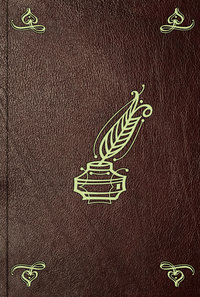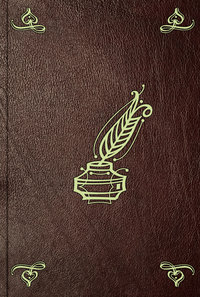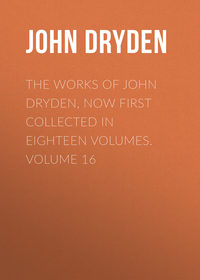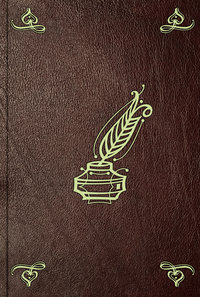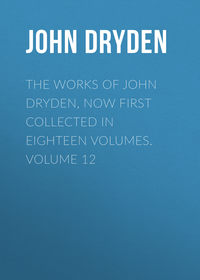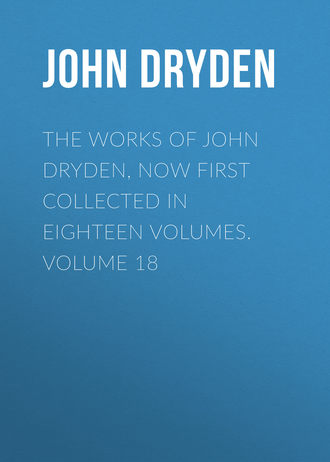 полная версия
полная версияThe Works of John Dryden, now first collected in eighteen volumes. Volume 18
DRYDEN’S LETTERS
LETTER I.
TO THE FAIRE HANDS OF MADAME HONOR DRYDEN THESE CRAVE ADMITTANCE. 55
MADAME, Camb. May 23, 16[55.]
If you have received the lines I sent by the reverend Levite, I doubt not but they have exceedingly wrought upon you; for beeing so longe in a clergyman’s pocket, assuredly they have acquired more sanctity than theire authour meant them. Alasse, Madame! for ought I know, they may become a sermon ere they could arrive at you; and believe it, haveing you for the text, it could scarcely proove bad, if it light upon one that could handle it indifferently. But I am so miserable a preacher, that though I have so sweet and copious a subject, I still fall short in my expressions; and, instead of an use of thanksgiving, I am allways makeing one of comfort, that I may one day againe have the happinesse to kisse your faire hand; but that is a message I would not so willingly do by letter, as by word of mouth.
This is a point, I must confesse, I could willingly dwell longer on; and, in this case, what ever I say you may confidently take for gospell. But I must hasten. And indeed, Madame, (beloved I had almost sayd,) hee had need hasten who treats of you; for to speake fully to every part of your excellencyes, requires a longer houre than most persons56 have allotted them. But, in a word, your selfe hath been the best expositor upon the text of your own worth, in that admirable comment you wrote upon it; I meane your incomparable letter. By all that’s good, (and you, Madame, are a great part of my oath,) it hath put mee so farre besides my selfe, that I have scarce patience to write prose, and my pen is stealing into verse every time I kisse your letter. I am sure, the poor paper smarts for my idolatry, which, by wearing it continually neere my brest, will, at last, be burnt and martyrd in those flames of adoration, which it hath kindled in mee. But I forgett, Madame, what rarityes your letter came fraught with, besides words. You are such a deity that commands worship by provideing the sacrifice. You are pleasd, Madame, to force me to write, by sending me materialls, and compell me to my greatest happinesse. Yet, though I highly value your magnificent presente, pardon mee, if I must tell the world, they are imperfect emblems of your beauty; for the white and red of waxe and paper are but shaddowes of that vermillion and snow in your lips and forehead; and the silver of the inkehorne, if it presume to vye whitenesse with your purer skinne, must confesse it selfe blacker then the liquor it containes. What then do I more then retrieve your own guifts, and present you with that paper adulterated with blotts, which you gave spotlesse?
For, since ’twas mine, the white hath lost its hiew,To show ’twas n’ere it selfe, but whilst in you:The virgin waxe hath blusht it selfe to red,Since it with mee hath lost its maydenhead.You, fairest nymph, are waxe: oh! may you beeAs well in softnesse, as in purity!Till fate, and your own happy choice, reveale,Whom you so farre shall blesse, to make your seale.Fairest Valentine, the unfeigned wishe of your humble votary,
Jo. Dryden.
LETTER II.
TO [JOHN WILMOT,] EARL OF ROCHESTER
MY LORD, Tuesday. [July, 1673.]57
I have accused my selfe this month together, for not writing to you. I have called my selfe by the names I deserved, of unmannerly and ungratefull. I have been uneasy, and taken up the resolutions of a man, who is betwixt sin and repentance, convinc’d of what he ought to do, and yet unable to do better. At the last, I deferred it so long, that I almost grew hardened in the neglect; and thought I had suffered so much in your good opinion, that it was in vain to hope I could redeem it. So dangerous a thing it is to be inclin’d to sloath, that I must confess, once for all, I was ready to quit all manner of obligations, and to receive, as if it were my due, the most handsome compliment, couch’d in the best language I have read, and this too from my Lord of Rochester, without shewing myself sensible of the favour. If your Lordship could condescend so far to say all those things to me, which I ought to have say’d to you, it might reasonably be concluded, that you had enchanted me to believe those praises, and that I owned them in my silence. ’Twas this consideration that moved me at last to put off my idleness. And now the shame of seeing my selfe overpay’d so much for an ill Dedication, has made me almost repent of my address. I find, it is not for me to contend any way with your Lordship, who can write better on the meanest subject, then I can on the best. I have only engaged my selfe in a new debt, when I had hoped to cancell a part of the old one; and should either have chosen some other patron, whom it was in my power to have obliged by speaking better of him then he deserv’d, or have made your Lordship only a hearty Dedication of the respect and honour I had for you, without giving you the occasion to conquer me, as you have done, at my own weapon.
My only relief is, that what I have written is publique, and I am so much my own friend as to conceal your Lordship’s letter; for that which would have given vanity to any other poet, has only given me confusion.
You see, my Lord, how far you have push’d me; I dare not own the honour you have done me, for fear of shewing it to my own disadvantage. You are that rerum natura of your own Lucretius;
Ipsa suis pollens opibus, nihil indiga nostri. 58You are above any incense I can give you, and have all the happiness of an idle life, join’d with the good-nature of an active. Your friends in town are ready to envy the leisure you have given your selfe in the country, though they know you are only their steward, and that you treasure up but so much health as you intend to spend on them in winter. In the mean time, you have withdrawn your selfe from attendance, the curse of courts; you may think on what you please, and that as little as you please; for, in my opinion, thinking it selfe is a kind of pain to a witty man; he finds so much more in it to disquiet than to please him. But I hope your Lordship will not omitt the occasion of laughing at the great Duke of B[uckingham,] who is so uneasy to him selfe by pursuing the honour of lieutenant-general, which flyes him, that he can enjoy nothing he possesses,59 though, at the same time, he is so unfit to command an army, that he is the only man in the three nations, who does not know it; yet he still picques himself, like his father, to find another Isle of Rhe in Zealand;60 thinking this disappointment an injury to him, which is indeed a favour, and will not be satisfied but with his own ruin and with ours. ’Tis a strange quality in a man to love idleness so well as to destroy his estate by it; and yet, at the same time, to pursue so violently the most toilsome and most unpleasant part of business. These observations would soon run into lampoon, if I had not forsworn that dangerous part of wit; not so much out of good-nature, but lest from the inborn vanity of poets I should shew it to others, and betray my selfe to a worse mischief than what I do to my enemy. This has been lately the case of Etherege, who, translating a satyr of Boileau’s, and changing the French names for English, read it so often, that it came to their ears who were concern’d, and forced him to leave off the design, e’re it were half finish’d. Two of the verses I remember:
I call a spade, a spade; Eaton,61 a bully;Frampton,62 a pimp; and brother John, a cully.But one of his friends imagin’d those names not enough for the dignity of a satyr, and chang’d them thus:
I call a spade, a spade; Dunbar,63 a bully;Brounckard,64 a pimp; and Aubrey Vere,65 a cully.Because I deal not in satyr, I have sent your Lordship a prologue and epilogue, which I made for our players, when they went down to Oxford. I hear they have succeeded; and by the event your Lordship will judge how easy ’tis to pass any thing upon an university, and how gross flattery the learned will endure.66 If your Lordship had been in town, and I in the country, I durst not have entertained you with three pages of a letter; but I know they are very ill things which can be tedious to a man, who is fourscore miles from Covent Garden. ’Tis upon this confidence, that I dare almost promise to entertain you with a thousand bagatelles every week, and not to be serious in any part of my letter, but that wherein I take leave to call myself your Lordship’s
Most obedient servant, John Dryden.
LETTER III
The following Note and Letter contains the determination of a dispute, and probably of a wager, which had been referred to our author by the parties. It concerns a passage in Creech’s “Lucretius,” and probably was written soon after the publication of that translation in 1682, when it was a recent subject of conversation. The full passage in “Lucretius” runs thus:
Præterea quæcunque vetustate amovet ætas,Si penitus perimit, consumens materiam omnem,Unde animale genus generatim in lumina vitæRedducit Venus? —Which Creech thus renders:
Besides, if o’er whatever years prevailShould wholly perish, and its matter fail,How could the powers of all kind Venus breedA constant race of animals to succeed?The translation of Creech is at least complicated and unintelligible; and I am uncertain whether even Dryden’s explanation renders it grammatical. Dryden speaks elsewhere with great applause of Creech’s translation.
The original of this decision (in Dryden’s hand-writing) is in the possession of Mrs White of Bownham-hall, Gloucestershire, and was most obligingly communicated to the editor by that lady, through the medium of Mr Constable of Edinburgh.
The two verses, concerning which the dispute is rais’d, are these:
Besides, if o’re whatever yeares prevaileShou’d wholly perish, and its matter faile.The question arising from them is, whether any true grammatical construction can be made of them? The objection is, that there is no nominative case appearing to the word perish, or that can be understood to belong to it.
I have considered the verses, and find the authour of them to have notoriously bungled; that he has plac’d the words as confus’dly as if he had studied to do so. This notwithstanding, the very words, without adding or diminishing in theire proper sence, (or at least what the authour meanes,) may run thus: —Besides, if what ever yeares prevaile over, should wholly perish, and its matter faile.
I pronounce therefore, as impartially as I can upon the whole, that there is a nominative case, and that figurative, so as Terence and Virgil, amongst others, use it; that is, the whole clause precedent is the nominative case to perish. My reason is this, and I think it obvious; let the question be ask’d, what it is that should wholly perish, or that perishes? The answer will be, That which yeares prevaile over. If you will not admit a clause to be in construction a nominative case, the word thing, illud, or quodcunque, is to be understood, either of which words, in the femine gender, agree with res, so that he meanes what ever thing time prevails over shou’d wholly perish, and its matter faile.
Lucretius, his Latine runs thus:
Prætereà, quæcunque vetustate amovet ætas,Si penitus perimit, consumens materiam omnem,Unde animale genus, generatim in lumina vitæRedducit Venus? &c.which ought to have been translated thus:
Besides, what ever time removes from view,If he destroys the stock of matter too,From whence can kindly propagation spring,Of every creature, and of every thing?I translated it whatever purposely, to shew, that thing is to be understood; which, as the words are heere plac’d, is so very perspicuous, that the nominative case cannot be doubted.
The word, perish, used by Mr Creech, is a verb neuter; where Lucretius puts perimit, which is active; a licence which, in translating a philosophical poet, ought not to be taken; for some reason, which I have not room to give. But to comfort the loser, I am apt to believe, that the cross-grain confused verse put him so much out of patience, that he wou’d not suspect it of any sence.
SIR,
The company having done me so great an honour as to make me their judge, I desire from you the favour of presenting my acknowledgments to them; and shou’d be proud to heere from you, whether they rest satisfyed in my opinion, who am,
Sir,
Your most humble servant,
John Dryden.67
LETTER IV.
TO THE REV. DR BUSBY
HONOUR’D SIR, Wednesday Morning, [1682.]
We have, with much ado, recover’d my younger sonn,68 who came home extreamly sick of a violent cold, and, as he thinks him selfe, a chine-cough. The truth is, his constitution is very tender; yet his desire of learning, I hope, will inable him to brush through the college. He is allwayes gratefully acknowledging your fatherly kindnesse to him; and very willing to his poore power, to do all things which may continue it. I have no more to add, but only to wish the eldest may also deserve some part of your good opinion; for I believe him to be of vertuous and pious inclinations; and for both, I dare assure you, that they can promise to them selves no farther share of my indulgence, then while they carry them selves with that reverence to you, and that honesty to all others, as becomes them. I am, honour’d Sir,
Your most obedient servant and scholar,
John Dryden.69
LETTER V.
TO THE REV. DR BUSBY
SIR, [1682.]
If I could have found in my selfe a fitting temper to have waited upon you, I had done it the day you dismissed my sonn70 from the college; for he did the message: and by what I find from Mr Meredith, as it was delivered by you to him; namely, that you desired to see me, and had somewhat to say to me concerning him. I observ’d likewise somewhat of kindnesse in it, that you sent him away, that you might not have occasion to correct him. I examin’d the business, and found, it concern’d his having been custos71 foure or five dayes together. But if he admonished, and was not believed, because other boyes combined to discredit him with false witnesseing, and to save them selves, perhaps his crime is not so great. Another fault, it seems, he made, which was going into one Hawkes his house, with some others; which you hapning to see, sent your servant to know who they were, and he onely returned you my sonn’s name; so the rest escaped.
I have no fault to find with my sonn’s punishment; for that is, and ought to be, reserv’d to any master, much more to you, who have been his father’s. But your man was certainly to blame to name him onely; and ’tis onely my respect to you, that I do not take notice of it to him. My first rash resolutions were, to have brought things past any composure, by immediately sending for my sonn’s things out of college; but upon recollection, I find, I have a double tye upon me not to do it: one, my obligations to you for my education; another, my great tendernesse of doeing any thing offensive to my Lord Bishop of Rochester,72 as cheife governour of the college. It does not consist with the honour I beare him and you to go so precipitately to worke; no, not so much as to have any difference with you, if it can possibly be avoyded. Yet, as my sonn stands now, I cannot see with what credit he can be elected; for, being but sixth, and (as you are pleased to judge,) not deserving that neither, I know not whether he may not go immediately to Cambridge, as well as one of his own election went to Oxford this yeare73 by your consent. I will say nothing of my second sonn, but that, after you had been pleased to advise me to waite on my Lord Bishop for his favour, I found he might have had the first place, if you had not opposed it; and I likewise found at the election, that, by the pains you had taken with him, he in some sort deserved it.
I hope, Sir, when you have given your selfe the trouble to read thus farr, you, who are a prudent man, will consider, that none complaine, but they desire to be reconciled at the same time: there is no mild expostulation, at least, which does not intimate a kindness and respect in him who makes it. Be pleas’d, if there be no merit on my side, to make it your own act of grace to be what you were formerly to my sonn. I have done something, so far to conquer my own spirit as to ask it; and, indeed, I know not with what face to go to my Lord Bishop, and to tell him I am takeing away both my sonns; for though I shall tell him no occasion, it will looke like a disrespect to my old master, of which I will not be guilty, if it be possible. I shall add no more, but hope I shall be so satisfyed with a favourable answer from you, which I promise to my selfe from your goodnesse and moderation, that I shall still have occasion to continue,
Sir,
Your most obliged humble servant,
John Dryden.74
LETTER VI.
TO LAURENCE HYDE, EARL OF ROCHESTER 75
MY LORD, [Perhaps August 1683.]
I know not whether my Lord Sunderland has interceded with your Lordship for half a yeare of my salary; but I have two other advocates, my extreme wants, even almost to arresting, and my ill health, which cannot be repaired without immediate retireing into the country. A quarter’s allowance is but the Jesuit’s powder to my disease; the fit will return a fortnight hence. If I durst, I would plead a little merit, and some hazards of my life from the common enemyes; my refuseing advantages offered by them, and neglecting my beneficiall tudyes, for the King’s service: but I only thinke I merit not to sterve. I never apply’d myselfe to any interest contrary to your Lordship’s; and on some occasions, perhaps not known to you, have not been unserviceable to the memory and reputation of my Lord, your father.76 After this, my Lord, my conscience assures me, I may write boldly, though I cannot speake to you. I have three sonns growing to man’s estate; I breed them all up to learning, beyond my fortune; but they are too hopefull to be neglected, though I want. Be pleased to looke on me with an eye of compassion. Some small employment would render my condition easy. The King is not unsatisfied of me; the Duke has often promised me his assistance; and your Lordship is the conduit through which they passe, either in the Customes, or the Appeals of the Excise,77 or some other way, meanes cannot be wanting, if you please to have the will. ’Tis enough for one age to have neglected Mr Cowley, and sterv’d Mr Butler; but neither of them had the happiness to live till your Lordship’s ministry. In the meane time, be pleased to give me a gracious and speedy answer to my present request of halfe a yeare’s pention for my necessityes. I am going to write somewhat by his Majesty’s command,78 and cannot stir into the country for my health and studies, till I secure my family from want. You have many petitions of this nature, and cannot satisfy all; but I hope, from your goodness, to be made an exception to your general rules,79 because I am, with all sincerity,
Your Lordship’s
Most obedient humble servant,
John Dryden.
LETTER VII.
TO MR JACOB TONSON
The letters to Tonson are without dates. I have retained those which Mr Malone has attached to them, from circumstances of internal evidence which it seems unnecessary to detail, but which appear in general satisfactory, though not given as absolutely conclusive.
MR TONSON, Monday Morning, [1684.]
The two melons you sent I received before your letter, which came foure houres after: I tasted one of them, which was too good to need an excuse; the other is yet untouched. You have written diverse things which give me great satisfaction; particularly that the History of the League is commended: and I hope the onely thing I feared in it is not found out.80 Take it all together, and I dare say without vanity, ’tis the best translation of any history in English, though I cannot say ’tis the best history; but that is no fault of mine. I am glad my Lord Duke of Ormond has one: I did not forget him; but I thought his sorrows were too fresh upon him to receive a present of that nature.81 For my Lord Roscommon’s Essay,82 I am of your opinion, that you should reprint it, and that you may safely venture on a thousand more. In my verses before it, pray let the printer mend his errour, and let the line stand thus:
That heer his conqu’ring ancestors were nurs’d; —83Charles his copy84 is all true. The other faults my Lord Roscommon will mend in the booke, or Mr Chetwood85 for him, if my Lord be gone for Ireland; of which, pray send me word.
Your opinion of the Miscellanyes86 is likewise mine: I will for once lay by the “Religio Laici,” till another time. But I must also add, that since we are to have nothing but new, I am resolved we will have nothing but good, whomever we disoblige. You will have of mine, four Odes of Horace, which I have already translated; another small translation of forty lines from Lucretius; the whole story of Nisus and Eurialus, both in the fifth and the ninth of Virgil’s Æneids: and I care not who translates them beside me; for let him be friend or foe, I will please myself, and not give off in consideration of any man. There will be forty lines more of Virgil in another place, to answer those of Lucretius: I meane those very lines which Montagne has compared in those two poets; and Homer shall sleep on for me, – I will not now meddle with him. And for the Act which remains of the Opera,87 I believe I shall have no leysure to mind it, after I have done what I proposed; for my business here is to unweary my selfe after my studyes, not to drudge.
I am very glad you have pay’d Mr Jones, because he has carryed him selfe so gentlemanlike to me; and, if ever it lyes in my power, I will requite it. I desire to know whether the Duke’s House are makeing cloaths, and putting things in a readiness for the singing Opera, to be played immediately after Michaelmasse.88 For the actors in the two playes89 which are to be acted of mine this winter, I had spoken with Mr Betterton by chance at the Coffee-house the afternoon before I came away; and I believe that the persons were all agreed on, to be just the same you mentioned; only Octavia was to be Mrs Butler, in case Mrs Cooke were not on the stage; and I know not whether Mrs Percival, who is a comedian, will do well for Benzayda.
I came hither for health, and had a kind of hectique feavour for a fortnight of the time: I am now much better. Poore Jack90 is not yet recovered of an intermitting feavour, of which this is the twelfth day; but he mends, and now begins to eat flesh: to add to this, my man, with over care of him, is fallen ill too, of the same distemper; so that I am deep in doctors, ’pothecaries, and nurses: but though many in this country fall sick of feavours, few or none dye. Your friend, Charles,91 continues well. If you have any extraordinary newes, I should be glad to heare it. I will answer Mr Butler’s letter next week; for it requires no hast.
I am yours,
John Dryden.
LETTER VIII.
FROM JACOB TONSON TO JOHN DRYDEN, ESQ
SIR, [Probably written in Jan. or Feb. 1692-3.]92
I have here returned ye Ovid, wch I read wth a great deal of pleasure, and think nothing can be more entertaining; but by this letter you find I am not soe well satisfied as perhaps you might think. I hope at ye same time the matter of fact I lay down in this letter will appear grounds for it, and wch I beg you wou’d concider of; and then I believe I shall at least bee excused.
You may please, Sr, to remember, that upon my first proposal about ye 3d Miscellany, I offer’d fifty pounds, and talk’d of several authours, without naming Ovid. You ask’d if it shou’d not be guynneas, and said I shou’d not repent it; upon wch I imediately comply’d, and left it wholy to you what, and for ye quantity too: and I declare it was the farthest in ye world from my thoughts that by leaving it to you I shou’d have the less. Thus the case stood when you went into Essex. After I came out of Northamptonshire I wrote to you, and reseived a letter dated Monday Oct. 3d, 92, from wch letter I now write word for word what followes:
“I am translating about six hundred lines, or somewhat less, of ye first book of the Metamorphoses. If I cannot get my price, wch shall be twenty guynneas, I will translate the whole book; wch coming out before the whole translation, will spoyl Tate’s undertakings. ’Tis one of the best I have ever made, and very pleasant. This, wth Heroe and Leander, and the piece of Homer, (or, if it be not enough, I will add more,) will make a good part of a Miscellany.”


